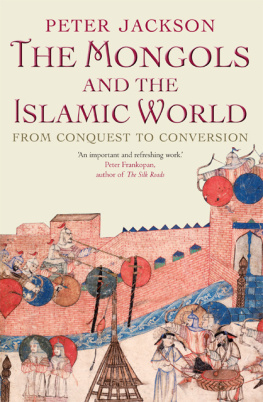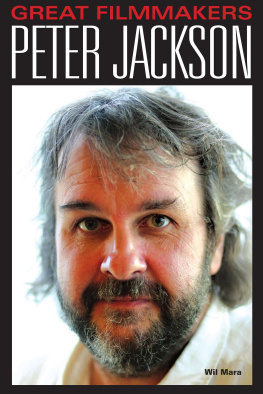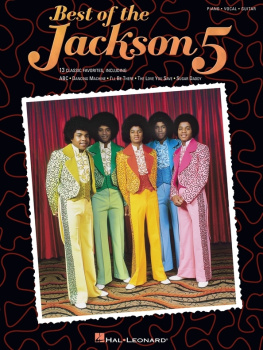Bloomsbury Academic
An imprint of Bloomsbury Publishing Plc
50 Bedford Square | 175 Fifth Avenue |
London | New York |
WC1B 3DP | NY 10010 |
UK | USA |
www.bloomsbury.com
First published 2013
Peter Jackson and the CONANX group, 2013
All rights reserved. No part of this publication may be reproduced or transmitted in any form or by any means, electronic or mechanical, including photocopying, recording, or any information storage or retrieval system, without prior permission in writing from the publishers.
Peter Jackson and the CONANX group have asserted their right under the Copyright, Designs and Patents Act, 1988, to be identified as authors of this work.
No responsibility for loss caused to any individual or organization acting on or refraining from action as a result of the material in this publication can be accepted by Bloomsbury Academic or the authors.
British Library Cataloguing-in-Publication Data
A catalogue record for this book is available from the British Library.
ISBN: HB: 978-0-8578-5195-6
PB: 978-0-8578-5196-3
ePub: 978-0-8578-5235-9
Library of Congress Cataloging-in-Publication Data
A catalog record for this book is available from the Library of Congress.
As this collection of essays attests, serious food scholarship is flourishing, indeed booming. For evidence, look at the growing number of reference books, monograph series, journals, conferences, workshops, documentaries, degree programs, museum exhibits, websites, and courses all devoted in some way to illuminating the many meanings of food. As a gauge of foods importance, one need look no further than this books table of contents. Can all of these words be related to food? Yes, and more so, for as Peter Jackson notes, the list does not include quite a few other words, such as natural, organic, dinner, fat or, for that matter, food. The lists selectivity proves a larger point, however: food is so relevant to so many key categories of inquiry and experience that we cant even begin to cover the subject.
Even more amazing, such a list might not have existed as recently as the 1970s. Many senior food scholars can remember well the skepticism voiced by our colleagues and, more consequently, our deans when we first revealed that we were doing food. For me, this perilous moment came during a job interview in 1979, when I was summarizing an article Id written about the origins of one of the first fast food chains in the United States, and my prospective dean chortled, Howard Johnsons, for Gods sake?! Suffice it to say this exclamation had more to do with disbelief than celebration. And even today, a declaration of interest in food studies may still be met by a bemused smirk. Today, however, we can feel reassured that we have lots of company, for it is eminently OK to pay attention to food. As the CONANX group has proved, one can even get funded by highly respectable international agencies to pay attention to food, and not just in the well-established disciplines of agronomy, food science, and clinical nutrition but also in the murkier areas of the humanities and social sciences.
Attention is the operative word here. Humans can pay attention to only so many things before cognitive overload sets in. Surveying the growth of a scholarly fieldin this case, foodthe historian wonders, Why now? Whats been going on over the past few decades that has encouraged us to notice food? Moreover, why wasnt it noticed before? People have been eating forever, but until thirty or so years ago, the academic literature on dining was rather spare. Yet, all of a sudden, were all agreeing with Lord Byron that much depends on dinner. That proposition now seems so obvious that one may be compelled to ask of our academic predecessors, What were they not thinking? (Conversely, one may wonderbut not herewhat are we not paying attention to these days? Given the fact of attention deficit, what have we given up so we can think about food? Such a shadow list would make an interesting appendix to this book.)
Why now? Academia is more of a marketplace than many of us would like to admit. In an era of severe economic restraints on the growth of higher education, it has become quite clear that food sells. Deans may still be privately skeptical, but they appreciate high enrollments, as well as the publicity accorded newsworthy food scholars. Studentsundergraduates and postgraduates alikelove to study food, and their market demand encourages an increasing supply of instructors, books, courses, and concentrations, the last a synonym for the focusing of attention. Food scholars in turn have discovered that they are not as alone as they once thought, as kindred spirits emerge in their own schools, disciplines, and cyberspace. As for why food sells now but not before, we can sort the reasons into outside and inside perspectives. The outside category would include the current events, worries, policy priorities, and trends noted in Jacksons introduction, especially the crisis of authority, trust, and responsibility wrought by the growing distance between producers and consumers. Studying food thus becomes the logical extension of caveat emptor, as more and more consumers seek greater transparency in a system that feeds so many so abundantly yet also seems to concentrate too much power in too few hands. Similarly, in seeking to explain why the counterculture took on the food industry in the late 1960s (Belasco 1989), I suggested outside factors such as the Vietnam War, changes brought on by the civil rights movement, and the rise of environmentalism.
Unlike those of us who first discovered food issues through the counterculture and other vehicles of cultural radicalism, however, current students of food have a much stronger body of literature to consult, cite, and revise. Learning from past scholarship is the way a discipline grows. Our understanding of how the global food system works has improved markedly as todays generation of emerging scholars builds on the insights of those who pioneered the field in the 1970s and 1980s. My own introduction to the systematic study of food came after a chance encounter with Joan Dye Gussows provocative reader, The Feeding Web: Issues in Nutritional Ecology (1978). While Gussow did an excellent job of directing me to the work of pioneering theorists such as Georg Borgstrom and Kenneth Boulding, the bibliographical resources supporting Food Words are far deeper and richer than anything imaginable twenty or thirty years ago. And as proof of current maturity, we should note a marked decline in the usage of clichs such as we are what we eat and food for thoughtoverdone phrases now reserved for neophyte journalists cutting their teeth on the food beat.









